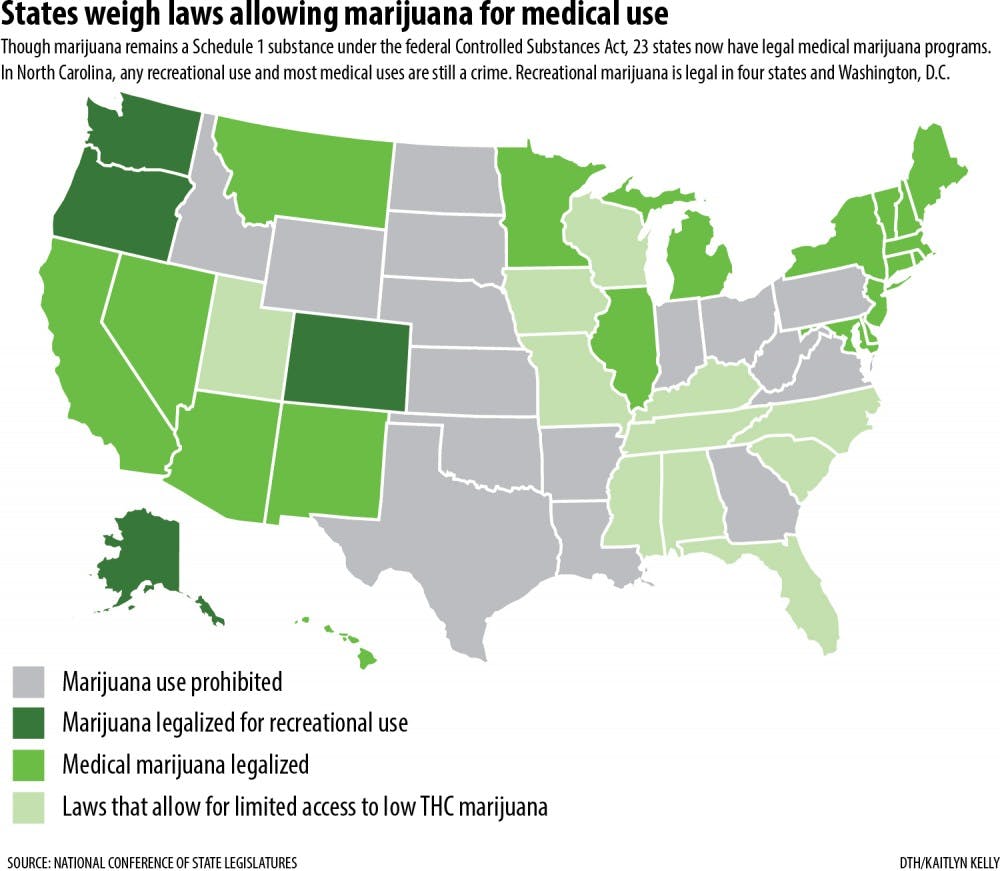Blunting the progress of medical marijuana programs that have been legalized nationwide — nearly two dozen in total — North Carolina lawmakers on Wednesday voted to kill a proposal that would have launched a medical cannabis program in the state.
After an hour of testimony from military veterans and cancer survivors who have taken cannabis for pain relief, the House of Representatives’ Judiciary I Committee had little discussion before giving House Bill 78 an “unfavorable report” — meaning that the measure can’t be brought up again during the 2015 session.
Since 2009, the legislature has weeded out more than half a dozen proposed medical marijuana bills.
The defeat hit hard for Rebecca Forbes, who has become one of the faces of the medical marijuana movement in the state and has worked with Democratic Rep. Kelly Alexander for several years to drum up support for a medical cannabis program.
After Forbes showed up at a hospital in 2009 with organ failure, doctors told her that she would be dead by the morning.
“I left the hospital against advisement because they were telling me I wasn’t going to make it,” Forbes said. “And that’s when I started taking the cannabis oil.”
Five years after Forbes began her daily cannabis regimen, doctors biopsied the same kidney tumor and diagnosed Forbes with an aggressive case of lymphoma.
She underwent chemotherapy at the Duke Cancer Institute while taking 100 milligrams of cannabis oil daily — and she believes the cannabis alleviated the treatment’s agonizing side effects, which include uncontrollable shakes, fever and vomiting. She has been cancer-free for six months.
Forbes was one of more than a dozen people to speak in favor of medical marijuana on Wednesday. Three people spoke against it.



